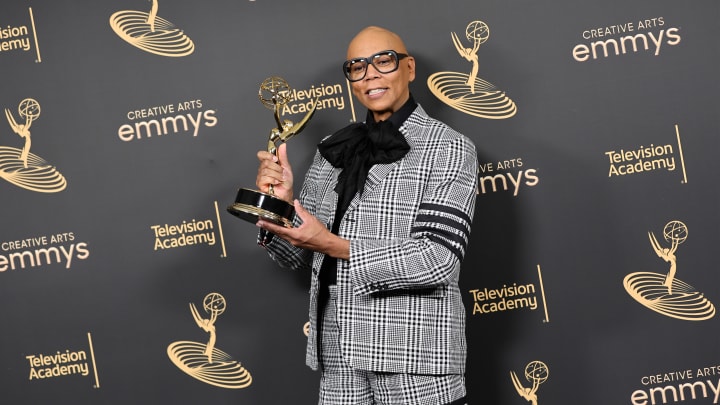10 Fun Facts About RuPaul’s Drag Race

With the Emmy Award Winning Show and 19 awards and counting, RuPaul has become one of the most talked about household competitions. You can’t talk about Drag without the mention of RuPaul. RuPaul has been on and off the screens for over a decade and has captured audiences worldwide. There have been spin-offs made and international versions that have risen in popularity. Here are some fun facts about the show that might surprise you!
1. The competition is an ode to the history and culture of the queer community.
When a queen is eliminated, she marks her name in red lipstick on the mirror as a farewell. This mirrors Butterfield 8, which stars Elizabeth Taylor, a gay icon. The memorable scene depicts Taylor writing “No Sale” on the mirror when a lover leaves her money.
2. The reading competition is inspired by the film Paris is Burning.
Another part of queer culture is a practice called “reading.” Part of the RuPaul competition and taken from a piece of the film Paris is Burning. Reading is a challenge where queens criticize each other with hilarious insults. It has become one of the audience's favorite challenges of the show.
3. RuPaul’s mother plays a role in the competition.
Maybe not as a contestant or judge, but RuPaul incorporates catchphrases from his mother in each show. One of the show's famous catchphrases is “If you can’t love yourself, how the hell are you going to love someone else?” RuPaul has said in interviews that he loves to include his mother’s catchphrases because they help to realign his life. Another line you might hear in the competition is, "Unless they're paying your bills, pay them b*tches no mind."
4. The judges have changed over the years.
Originally, RuPaul, Santino Rice (a fashion designer and former Project Runway contestant), and fashion writer Merle Ginsberg were part of the lineup for the judges. But over the years, they have changed to have a celebrity guest judge, Carson Kressley, a Queer Eye star, or Ross Matthews, a TV personality. Since season 3, Michelle Visage, a singer, actor, and DJ has been a constant judge.
5. Judges are getting harsher with critiques.
It isn’t just your imagination; the judges are becoming more ruthless with their feedback. The competition is stiff and makes for a drama-filled show! Something you would have seen a slide in the first two seasons is just not going to slip by any longer. It also depends on how much criticism contestants can take - putting them in a stronger position or not.
6. Winners have gone to do major things.
Raja, the season 3 winner, became the makeup artist for America’s Next Top Model. Jinx Monsoon of season 5 did a voice on Steven Universe and Mighty Magiswords and played a part in Happiest Season and AJ and the Queen, which RuPaul co-created on Netflix. After winning season 10, Aquaria signed with IMG Models and was named Entertainment Editor of Dazed Beauty.
7. Some contestants have returned to compete again.
RuPaul has invited some contestants back who have already competed. Just because a contestant may not win the first time does not mean you won’t see them again. Shangela and Vanessa Vanjie Mateo, a.k.a. Miss Vanjie, are two contestants who earned a second chance. Vanessa is known to have the most memorable Drag Exit on the show.
8. Some contestants remain unhappy about their time on the show.
While most contestants have found career opportunities and expanded their names and likeness, some do not feel similarly. Some Drag Race contestants have been unhappy with how the show portrayed them and have cited that as a reason they haven’t gone on to find success outside the show. For example, Phi Phi O’Hara has had interviews saying the show made her out to be a “monster,” and she believes they made her out that way by removing the context of her story.
9. RuPaul has caused drama in the transgender community.
In 2018, Ru made an anti-trans statement in the Guardian, which got him in trouble. He was asked if biological women would ever be able to compete in the show. His response was unfavorable because he thought it would make drag lose its “sense of danger,” and the show was only meant for men to make a “social statement” to the “male-dominant culture.” He apologized for his statement on Twitter and called the trans community heroes.
10. So what is the end game for RuPaul?
To put it simply, he wants world domination. While the show has found popularity in the United States, spin-offs have been happening internationally in the UK, Thailand, Australia, Holland, and Canada. Ru is taking the show to the next level with the help of his producers and reframing how the world thinks of drag culture.